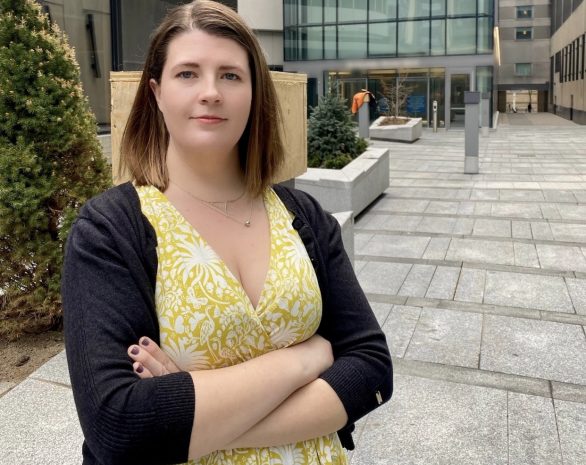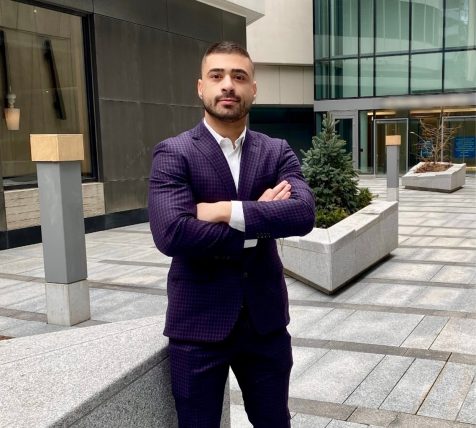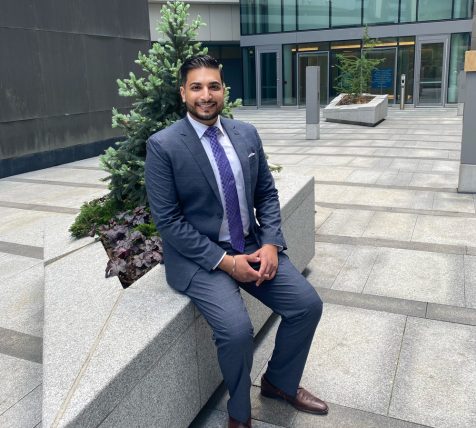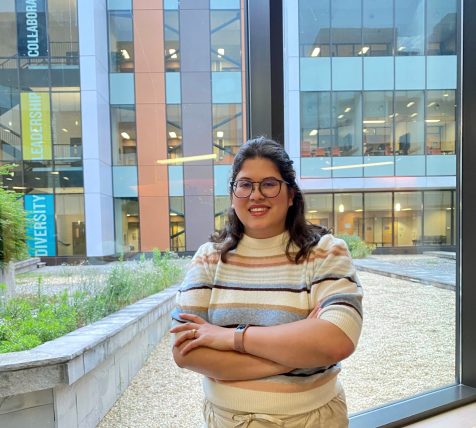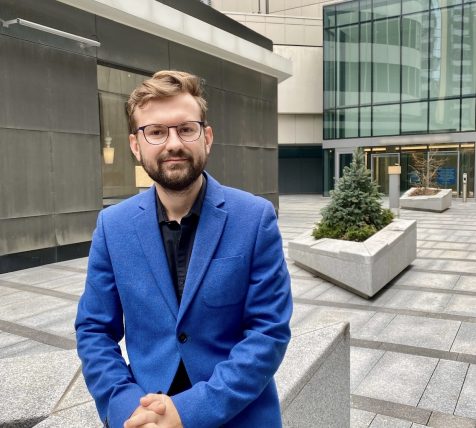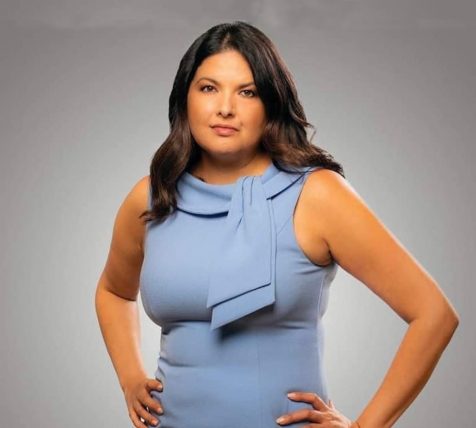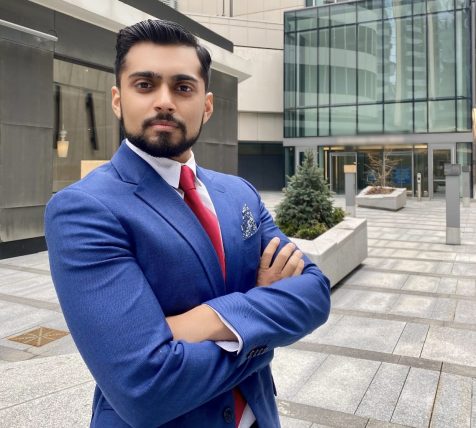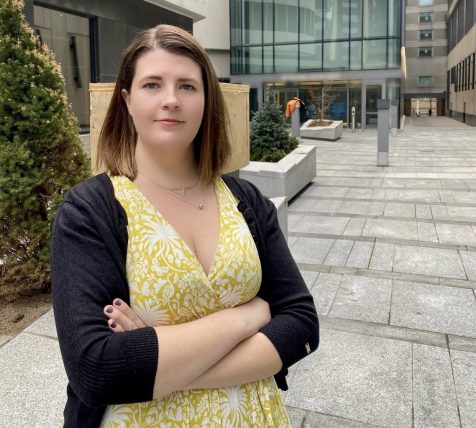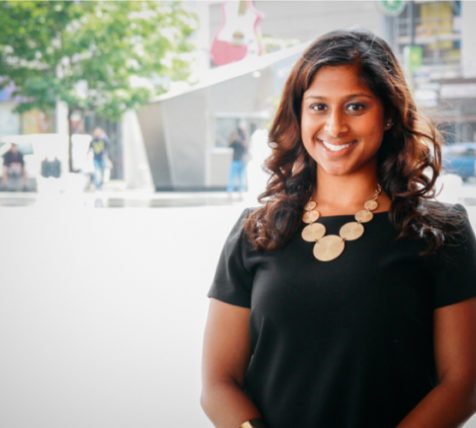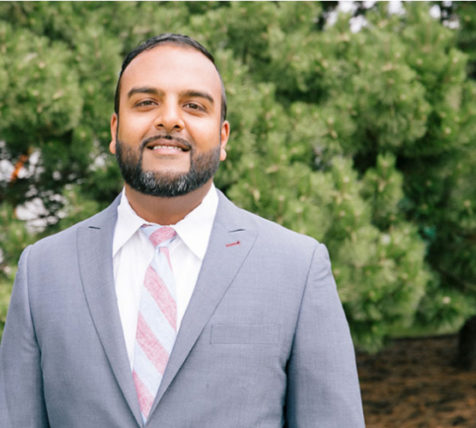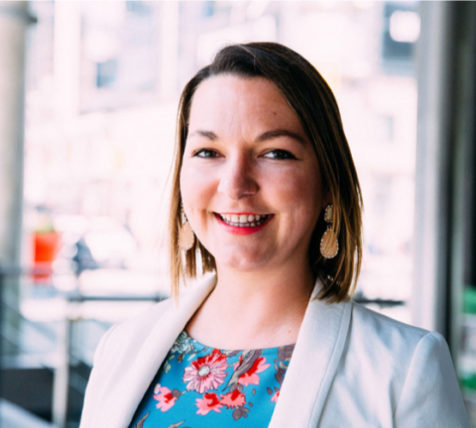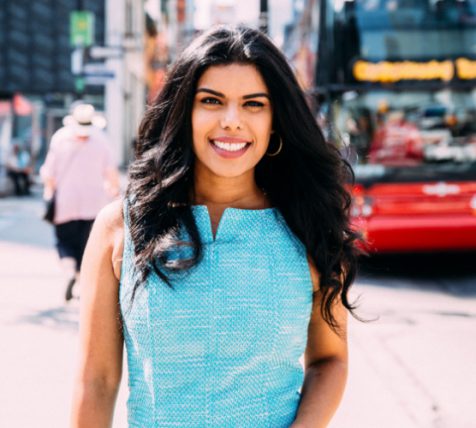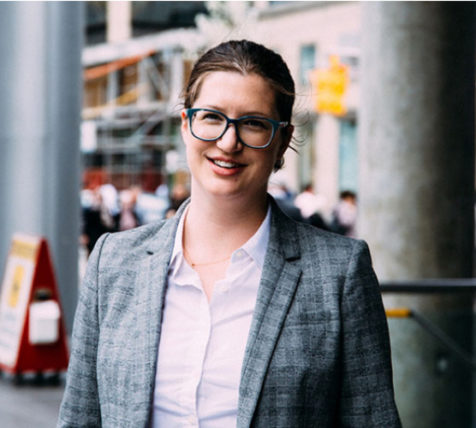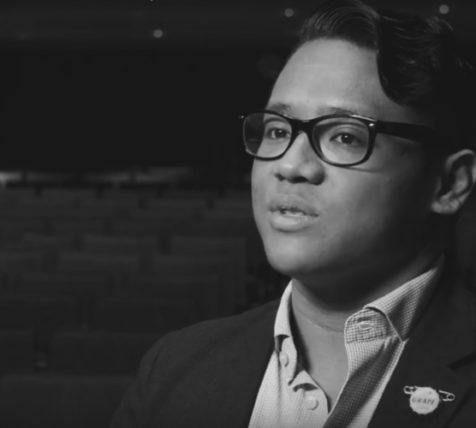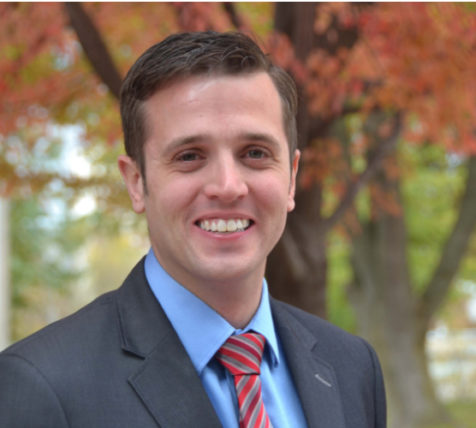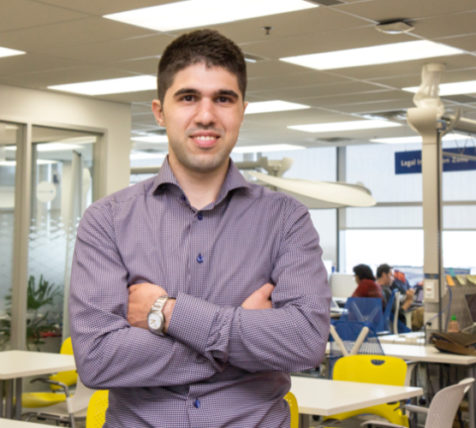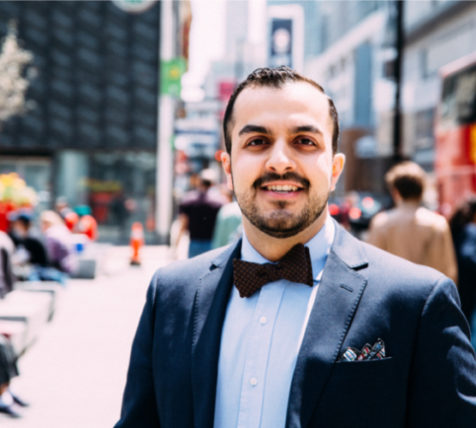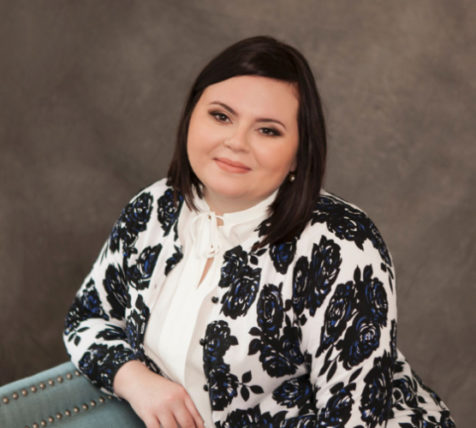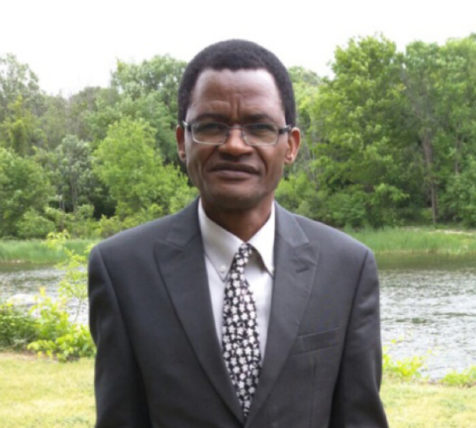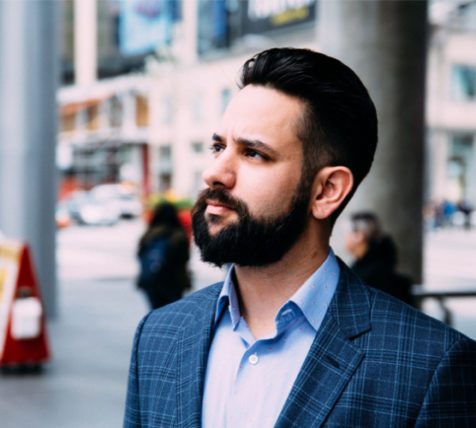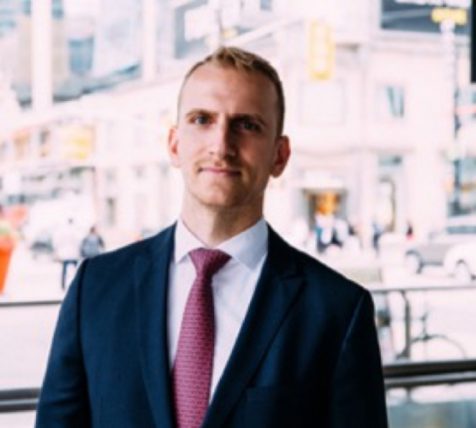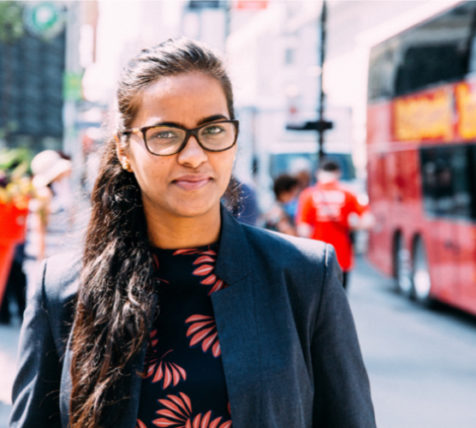Allison Miller
2014/2015
Allison Miller is deeply committed to her craft and her admiration for her work has only grown with time. She was part of the very first LPP cohort and one of 221 candidates to successfully complete the program.
About Allison Miller
Founding Partner, Miller IP Law, Toronto, ON, Canada
Allison always wanted to be a lawyer. She was empowered by her mom who is a lawyer and her grandmother who worked as a secretary at a law firm. They were strong role models who encouraged her to get out of her comfort zone and pursue a higher education. Their tenacity and integrity shaped Allison. As a child, she spent a lot of time in her mom’s boutique firm where she was inspired by her mom’s relentless work ethic. She remembers helping out in the photocopier room and stuffing bills in envelopes at the end of the month. “I know that there are a fair number of people who regret going to law school, but because I had the advantage of seeing what it is like to be a lawyer, I went in with my eyes wide open, knowing what to expect," says Miller.
These days, Miller and her mom enjoy the advantages of autonomy and flexibility while running a small firm together. Their practice focuses on intellectual property law, copyright and trademark law. Approximately 60% trademark prosecution (filing a trademark through registration) and 40% litigation. About 60% of their work is international and is outside of Canada. “We have work coming in from Europe and Australia overnight. We typically don’t see clients in our office, and really everything can be done by phone or by email. Every day we receive correspondence from the Canadian Intellectual Property Office, and we are sending correspondence to the Office.”
Allison’s innovative force and unique perspective on trademark law feel especially important right now. There are strict deadlines that apply to the process of trademark work. “For example if you receive an objection to your trademark application, you have six months to file a response or else your trademark application will be declared abandoned. We always have a lot of deadlines coming up and we have to be very vigilant to stay on top of them and send out reminders where we are still waiting for instructions from our clients. No day is the same as the day before, but most days are spent in the office.”
Allison always wanted to be a lawyer. She was empowered by her mom who is a lawyer and her grandmother who worked as a secretary at a law firm. They were strong role models who encouraged her to get out of her comfort zone and pursue a higher education. Their tenacity and integrity shaped Allison. As a child, she spent a lot of time in her mom’s boutique firm where she was inspired by her mom’s relentless work ethic. She remembers helping out in the photocopier room and stuffing bills in envelopes at the end of the month. “I know that there are a fair number of people who regret going to law school, but because I had the advantage of seeing what it is like to be a lawyer, I went in with my eyes wide open, knowing what to expect," says Miller.
These days, Miller and her mom enjoy the advantages of autonomy and flexibility while running a small firm together. Their practice focuses on intellectual property law, copyright and trademark law. Approximately 60% trademark prosecution (filing a trademark through registration) and 40% litigation. About 60% of their work is international and is outside of Canada. “We have work coming in from Europe and Australia overnight. We typically don’t see clients in our office, and really everything can be done by phone or by email. Every day we receive correspondence from the Canadian Intellectual Property Office, and we are sending correspondence to the Office.”
Allison’s innovative force and unique perspective on trademark law feel especially important right now. There are strict deadlines that apply to the process of trademark work. “For example if you receive an objection to your trademark application, you have six months to file a response or else your trademark application will be declared abandoned. We always have a lot of deadlines coming up and we have to be very vigilant to stay on top of them and send out reminders where we are still waiting for instructions from our clients. No day is the same as the day before, but most days are spent in the office.”
Law Degree:
Dual JD program: JD from the University of Windsor and a JD from the University of Detroit Mercy
LPP In One Word:
Thorough
Favourite Book Of All Time
Sense and Sensibility by Jane Austen
What is the best part of your career?
I love spotting my clients’ trademarks in the wild. It is thrilling to see them out in the world, knowing that I played a small part in securing the protection of that brand. Having our own firm, we get to take on the clients that we want, and for us that means both small local business along with several Fortune 500 companies with large Canadian trademark portfolios. From the grocery stores to toy stores, to offices, restaurants, and everything in between, it is always thrilling to spot one of our trademarks out in the world.
In 2021, not a lot of businesses are national in scope, and most are selling their products in several countries, and so we work every day with lawyers all over the world to help our local clients register their trademarks in other countries, and to help foreign companies register their trademarks in Canada. This international aspect of our practice is a highlight for me. We usually go to a big conference every year with 10,000 trademark lawyers from all over the world and it’s a chance to catch up with everyone all at once. That has been cancelled for the past two years, but is something I am looking forward to in 2022!
What is your least favourite part of the job?
Definitely all of the parts that have to do with running my own business. Having to change the printer cartridge is pretty high up there. Troubleshooting any technology issues. Banking, billing, taxes, anything that has to do with money.
Also there are parts of the job that are out of our control, and that can be frustrating. Over the six years that I have been practicing, the Canadian Intellectual Property Office has gotten progressively slower at processing trademark applications. It used to be 15 months, and now it is 30 months. There is nothing we can do to speed that up, but because it is so much slower than the rest of the world (UK is 1 month, Australia is 2 months, and the US is 5 months), I am constantly having to explain to people that, yes, it really is that slow in Canada.
What legal case(s) had a strong impact on you and why?
I really enjoyed classes in US Constitutional Law while I was in Detroit, and I still follow SCOTUS (Supreme Court of the United States) today, even though it doesn’t have anything to do with my area of practice. The US v. Windsor case, which was the first gay marriage case, was decided while I was in law school, and so I have fond memories of following the case very closely while in school and celebrating the decision with classmates. I also have a particular love for a strongly worded dissent. I think the reason I love them so much is that when a Justice writes a dissent, they know that they have lost and that the law will not be what they wanted, so they are writing for posterity and for the future. Ruth Ginsburg said “I like to think that most of my dissents will be the law someday.”
I have always loved Justice Harlan’s dissent in Plessy v. Ferguson (which is the separate but equal case that was eventually overturned with Brown v. Board): “In the eye of the law, there is in this country no superior, dominant, ruling class of citizens. There is no caste here. "Our constitution is colorblind, and neither knows nor tolerates classes among citizens. In respect of civil rights, all citizens are equal before the law. The humblest is the peer of the most powerful. . .The arbitrary separation of citizens on the basis of race, while they are on a public highway, is a badge of servitude wholly inconsistent with the civil freedom and the equality before the law established by the Constitution. It cannot be justified upon any legal grounds.”
Elena Kagan is great at a fiery dissent, and this was from her this past year, in a case denying a State’s right to order various closures: “I fervently hope that the Court’s intervention will not worsen the Nation’s COVID crisis. But is this decision causes suffering, we will not pay. Our marble halls are now closed to the public, and our life tenure forever insulates us from responsibility for our errors. That would seem good reason to avoid disrupting a State’s pandemic response. But the Court forges ahead regardless, insisting that science-based policy yield to judicial edict. I respectfully dissent.”
In law school the hardest class that challenged me to change my worldview far more than any other was American Indian Law. The cases are really difficult to read because they seem like they are decided wrong until you really buy into tribal sovereignty. Two examples of this are:
Ex Parte Crow Dog, which held that the US did not have jurisdiction for a murder charge because the crime was committed on tribal land (murderer going free)
Mississippi Band of Choctaw Indians v. Holyfield, which voided an adoption because the state court did not have jurisdiction the tribe did (mother left reservation to give birth and chose adoptive parents, specifically did not want her newborn twins to be raised on reservation—adoption was voided when babies had been raised by adoptive parents from birth to 3 ½)
Describe a defining moment in your legal career?
I’m six years into practicing law and I really feel like I’m just getting started. As a trademark lawyer and agent, I am dual-regulated, so I am licensed by both the Law Society of Ontario and the College of Patent Agents and Trademark Agents. To become a trademark agent, you have to write two exams, and you have to have been working in the area of trademark law for two years. For my first two years of practice, I was learning to be a lawyer, but also studying for these exams at night and on the weekends. Once I took those exams, I realized that after 3 university degrees, the LPP, the bar, and the trademark agent exams, I was finally done studying and writing exams and it was the biggest relief. There is obviously still a lot of work that goes into staying current on developments in trademark law, but I do not miss the weekend study sessions at all!
Where did you complete your LPP work placement?
Access Copyright, which is a copyright collective. I was gathering evidence/doing research for the duration of my placement. Access Copyright has been involved with copyright litigation for a long while, up to the Supreme Court, that has changed the scope of copyright protection in Canada. Seeing behind the curtain how big cases like that, cases that decades, are handled was so interesting and I really loved my time there.
Describe some of the helpful tools or skills you acquired during the LPP?
Since my placement wasn’t at a law firm, all of the parts of the LPP that had to do with interacting with clients and managing files were particularly valuable for me. That was the only experience I had before I was running my own firm, so everything from docketing time to running conflicts checks were invaluable. The simulated law firm experience, with pretend files and clients and partners ended up being my only experience until I had my own firm. During the LPP we used Clio and it worked well, so when we started our firm, we used Clio as well, and we use it to this day.
